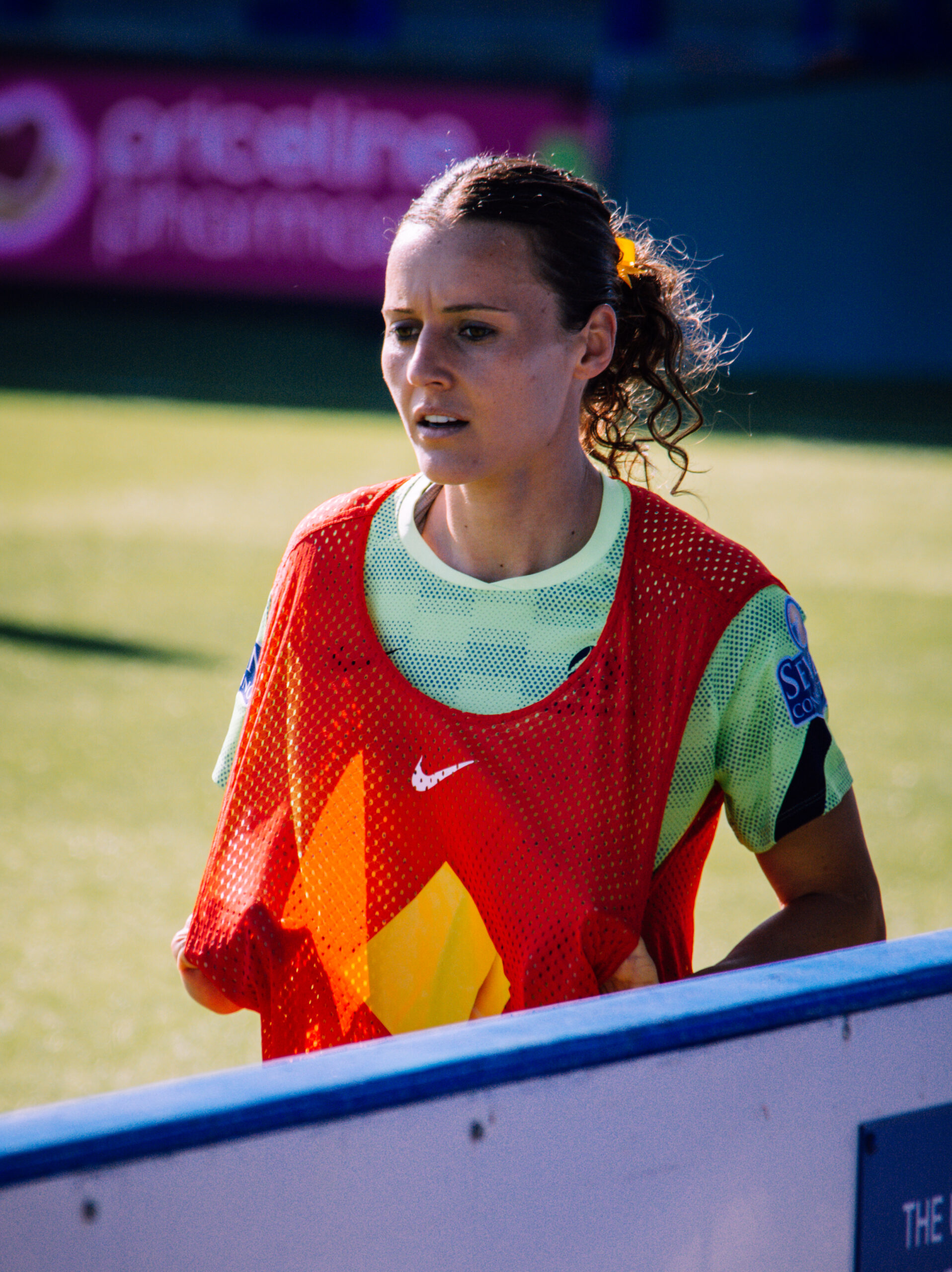“Today most people know that I broke my back, and then I went through this recovery, and then I came back. As if that’s all there was to it. But the day-to-day tasks, the challenges, the fear, the pain. I don’t think anybody will ever be able to understand what that was like. When you have a broken back, when you can’t walk, when you can’t move, even the simplest tasks can make you feel as if you’re trying to climb the Everest.”
On the 25th August 2018, Hayley Raso’s world was turned upside down when she was severely injured playing against Washington Spirit during her tenure with Portland Thorns in D.C. When chasing a long ball, where she was trying to head it, she felt the impact of the goalkeeper’s knee in her back. The impact sent her to the ground in excruciating pain, a pain she would never forget. At the hospital, doctors originally thought that she had injured her liver, but she had in fact fractured three vertebrae in her back.
“Things like this aren’t supposed to happen to a soccer player. […] It’s a freak accident. […] To be honest, it’s still hard for me to talk about this day. But if my story can be an inspiration for someone, then it’s worth telling.”
Her dad, John, was by her side from the moment she was stretchered inside until she received the diagnosis. Immediately, doubts about whether she would ever walk or play football again plagued her mind. The doctors continuously reassured her that she would recover, that she would walk, despite the pain she would have to endure throughout her rehabilitation. Raso immediately called her mum, Renaye, who had been watching the game from their home in the Gold Coast, Australia. Raso reassured her, explaining that she would be fine, attempting to ease her worries but ultimately knowing that she would still be concerned.
Having already been caring for Raso’s two older brothers – the eldest living in a full-time care home, and the other having undergone open-heart surgery a few years prior – her mum, urgently took a flight to D.C. to be with Raso in hospital. Following approximately 10 painful days in the hospital, Raso was transferred to a rehabilitation hospital in D.C. She struggled to find hope in her situation as she had to relearn how to walk. During this time, she considered giving up on football and throughout her rehab, she studied part-time to become a paramedic, a lifelong aspiration of hers.
“I’m fine, I can just be a paramedic.” She continued, “I don’t need soccer anymore.”
Raso had to remind herself why she began playing football in the first place and looked back to her first Matildas camp where she, aged 17, discovered the ‘world full of superstars’ that were playing overseas and representing their country in international tournaments such as the World Cup and the Olympic Games. During that time she thought:
“Yeah this is something for me.”
Holding on to that memory, she regained her motivation – she wanted to play at the next World Cup and the Olympics, having never represented Australia at the Olympics before. Not only did that moment motivate her when she was in excruciating pain, pain which caused her to pass out as it was too much for her body, other people in hospital inspired her too. Despite not speaking to them, she saw their determination as they continued doing what they loved despite their challenging circumstances. Ultimately, what resonated with her most was her mum, Renaye’s encouragement – that she could achieve anything she set her mind to.
Following a long stretch of painful months, this sentence finally turned into reality for Raso. She was called back into the national Australian team camp in February 2019. Not even six months after her life-changing injury she scored a goal on the 28th February, in the Cup of Nations against New Zealand. Only a few months later, she was called to represent Australia in the 2019 World Cup squad and impacted all four World Cup games. In 2020, Raso was finally called up to an Olympic Game, the Tokyo Olympics, a life-long dream of hers.
Raso defied the odds and represented the Matildas at home in the 2023 World Cup in Australia and New Zealand and booked a ticket to the 2024 Paris Olympics where her resilience and determination was evident on the pitch. Her desire to work as a paramedic after her career and the devotion to help people remained, because she saw what her mum did for her. She wants to be an inspiration, just like Renaye, her mother. In the eyes of an Australian Nation and numerous people around the globe, she already is a large source of inspiration. She’s a role-model on and off the pitch and exemplifies that you can overcome the tough times and can achieve anything you put your mind to. Raso’s story continues to remain one of determination, resilience and passion.



